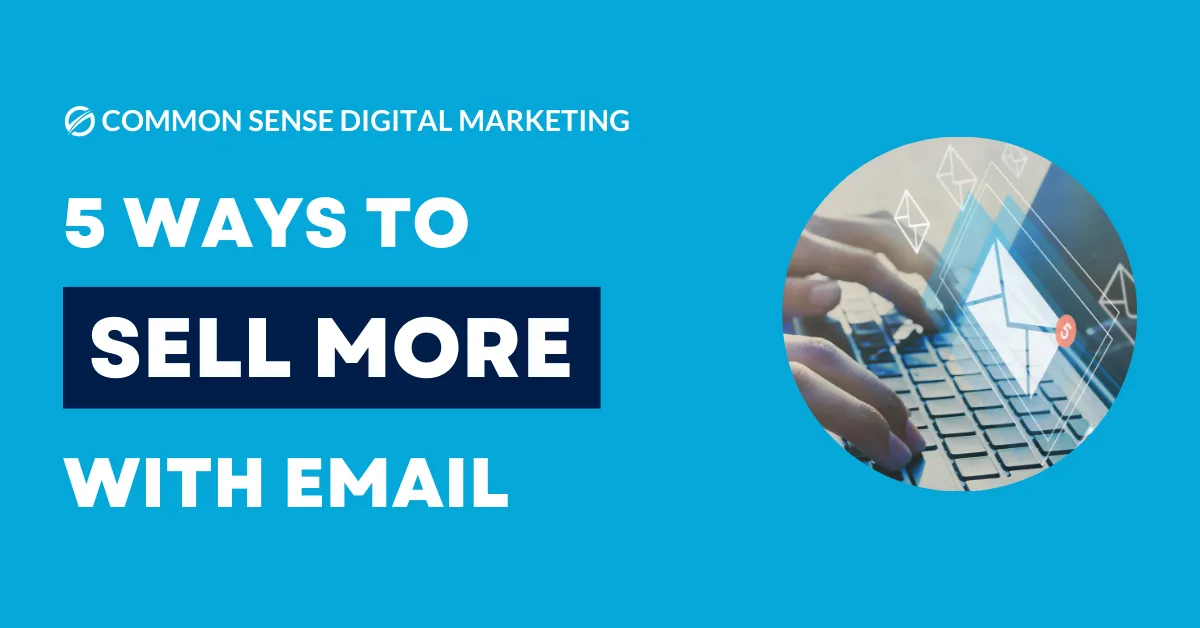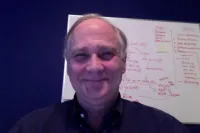Welcome To My Blog!

5 Ways To Sell More With Email
If you want to sell more online there is one idea you must learn and master.
All marketing – and I do mean all marketing – is about two things.
Problems
Solutions
The more your marketing focuses on problems and solutions, the more you will sell.
I mean all of your marketing, including …
Blog posts
Solo ads
Facebook ads
Social posts
Banner ads
Everything!
If you want to sell more today’s video is the perfect place to start.
I hope you enjoy it.
Prefer to read? Here is the transcript for your convenience.
Hi. This is Charlie Page. I want to share with you five ways to sell more with email.
I love email marketing. As a matter of fact, I’m currently teaching a course on email marketing called The Breathing Method.
I want to share with you one of the things that I’m teaching inside that course, and that is, what to say in your opening line.
You never get a second chance to make a first impression. That opening line is very important.
Have you ever wanted to do something and didn’t know how to start? Email marketing can be like that.
What list do I send to?
What product should I promote?
What should I say in my emails?
How to start your email right is very important.
The first words we say in our emails are the most important.
It’s vital to get that opening line right because it gets attention, it gets people to keep reading, and it’s what Google shows in Gmail’s preview line.
I have an entire video about how to write for the preview line.
Now let’s look at what to say in your opening sentence.
Here are five options. They work for almost every situation.
Option one: “Ever wish you could?”
If your product helps a person do something or be something or have something, this is perfect for you.
Let me give you an example. “Ever wish you could have an online business of your own?”
That’s a very compelling opening line.
People will generally say yes in their head to that if you’ve targeted the right list and you know your avatar.
Here’s another. “Ever wish you could lose 20 pounds in only six weeks?” That gets a lot of attention.
The key is to find something where they will say yes in their minds. If they do, they’ll keep reading.
Option two: “Are you tired of?”
This is a great opener that taps into the dissatisfaction most people feel.
I want to give you an example of that. “Are you tired of losing money in the stock market?”
Most people who are in the stock market have lost money at one point or another.
Even successful investors lose money. Nobody likes it and everybody’s tired of it, so you know you’re tapping into a sentiment that already exists.
How about this one? “Are you tired of losing your hair?”
Let me tell you, I’m losing my hair. I’m 62 and I don’t know where it goes. I guess it goes off somewhere and has another life, but it goes and I’m tired of it.
This will really get a person’s attention if they already have this problem.
If you’ve done your marketing right, of course, you know who your avatar is, you know where to find them, and when you’re speaking to their known needs, you’re going to get their attention.
Here’s another. “Are you tired of your clothes not fitting right?”
This is a great approach for diet and weight loss and exercise products, but people very rarely use this, so it really, really works well.
People who are overweight, and I’ve been there, people who are overweight, one thing they struggle with is finding clothes that fit right that don’t look too baggy or don’t look too loose.
It’s a great, great opening line. These work well in most niches, as a matter of fact.
Option three: “Are you struggling to?”
This is similar to “are you tired of”, but different in the way that it’s speaking to the person who is actively trying to change but struggling with what they’re doing.
A fine line, but very powerful.
Let me give you an example. “Are you struggling to build your list?”
This appeals to a person who knows they need a list, who wants to have a list, and now they’re doing something, they’re trying something.
They’ve taken a course, they’ve read a blog post, they’re doing something, but they’re struggling with it.
“Are you struggling to lose that last five pounds?” This is also a very powerful one in the health and wellness area.
That last five pounds come off hard.
If you use this approach, you’re talking to a completely different person, a completely different avatar, than a person who needs to lose 45 pounds.
You’re saying here, “You’re struggling to lose that last five pounds.”
That’s a person who’s in the process, they’re underway, they’re doing the work, but they’re struggling to get the final result.
This works well when you know your avatar and what change they want.
Here’s the thing. All people want change. People buy products because they want to go from where they are now to where they want to be as quickly and as easily as possible.
When you know what your product does, what it can do to change a person, you can write these types of emails.
When you know that, you can speak directly to them.
Option four: “Do you remember when?”
We learn in the fundraising business, politics, charity, that type of thing, that the key to success is to get a group of middle aged people who have high incomes into a room and remind them of the “good old days”.
Let me tell you, that’s when your fundraising takes off.
When you get a group of people in a room who have the means to donate, and you start reminding them of the good old days, what it was like 20 years ago, 30 years ago, whatever, that’s when results really start happening.
Everyone remembers the good old days. If you’re 33 or 73, you remember the good old days.
If you’re promising change with a product or a service, and you’re calling them back to happy memories, that’s a powerful trigger, very powerful, and most often overlooked by people.
Let me give you a couple of examples. “Remember when the idea of having an online business was exciting?”
Let me tell you, if you’re a person who wants to have an online business, whether you have an online business that’s doing $20 million or you are struggling to make the rent, you remember a time when it was very exciting, the idea of making extra money online, of having an online business, of helping customers, but there is that dip in an excitement that happens.
There’s that stretch in the middle where it’s just flat hard.
During that period of time, it’s hard to remember when you were excited about it.
When someone comes along and says, “Remember when this was exciting?”, you call back to that in your mind. That evokes an emotion that causes you to pay attention.
When people are struggling, their natural instinct is to remember how it felt when they had enthusiasm.
That’s what keeps them going, and they want to go back there.
Using “remember when” taps into that emotion and creates a powerful pull to want to know more.
One last example. “Remember when life was fun and exciting?”
If you’re in any sort of self-improvement or personal growth space, this is a great line to use. “Remember when life was fun and exciting?”
No matter what life you’ve lived so far, there has been a period of time when things were exciting and fresh and new and vibrant, and there have been periods of time when it’s just been a drag, where it’s just been a grind, a drudge, a day to day thing.
If you can call back a person’s memory to when it was fun and exciting, you get their attention and you have an opportunity to make the case for your product.
Of course, you want to follow that up with, “It can be that way again”, and then go on to say how your product can deliver on that promise, how it can make that happen.
Option five: “Why doesn’t _____ work like it should?”
People all ask this question in their mind.
They get an autoresponder service, they get an oil change, they join a diet program, they join a health club, they do anything.
Why doesn’t something work the way it should?
The fact is, a lot of things don’t. This taps into the idea that people are not getting the results they want from what they’re doing, and frankly, most are not.
You can help them change that.
This is very important. You’re trying to say, “I can help you change this.”
Let me give you an example. “Why doesn’t social media work to make sales?”
Have you ever wondered that?
Why can’t you just go on Facebook and place an ad and make a bunch of sales? Advertising on Facebook is very effective, but it’s not falling off a log.
There is a process you have to follow, and most people who try it, or at least many people who try it, don’t succeed with it.
They wonder, “Why doesn’t it work to make sales? There’s a billion and a half people on Facebook, right? Why can’t I sell them something?”
This is a very powerful hook to get people to pay attention.
Here’s another one. “Why don’t credit repair programs work the way they say they will?”
This can be, if you take credit repair programs out and you insert almost any product, that is a very powerful statement.
This works well to position you as an alternative that will work without trashing your competition.
I would not use “why doesn’t blank work” with a specific product.
I wouldn’t say, “Why doesn’t name of product work very well?” I think that’s bad form and not very effective, but go your own way and do your thing.
People have different levels of aggression in their marketing. I don’t like to trash somebody else’s product in order to make mine look good because mine looks good by itself.
I want to sell on the merits, not by tearing anybody else down.
All marketing is about problems and solutions.
All marketing is about problems and solutions.
Click to Tweet
Here’s the thing to remember. If you take one thing away from this video, here it is.
All marketing is about problems and solutions.
Your customers have problems, you offer solutions.
When your email marketing or any of your marketing shows that you understand their problems, they know they can trust you to provide the solution.
Did you find this helpful? I hope you did. If you did, please share it.
There’s a sharing button somewhere near this video. Please use it to share.
This is Charlie Page. Thanks for being here. I hope you have a wonderful day.


